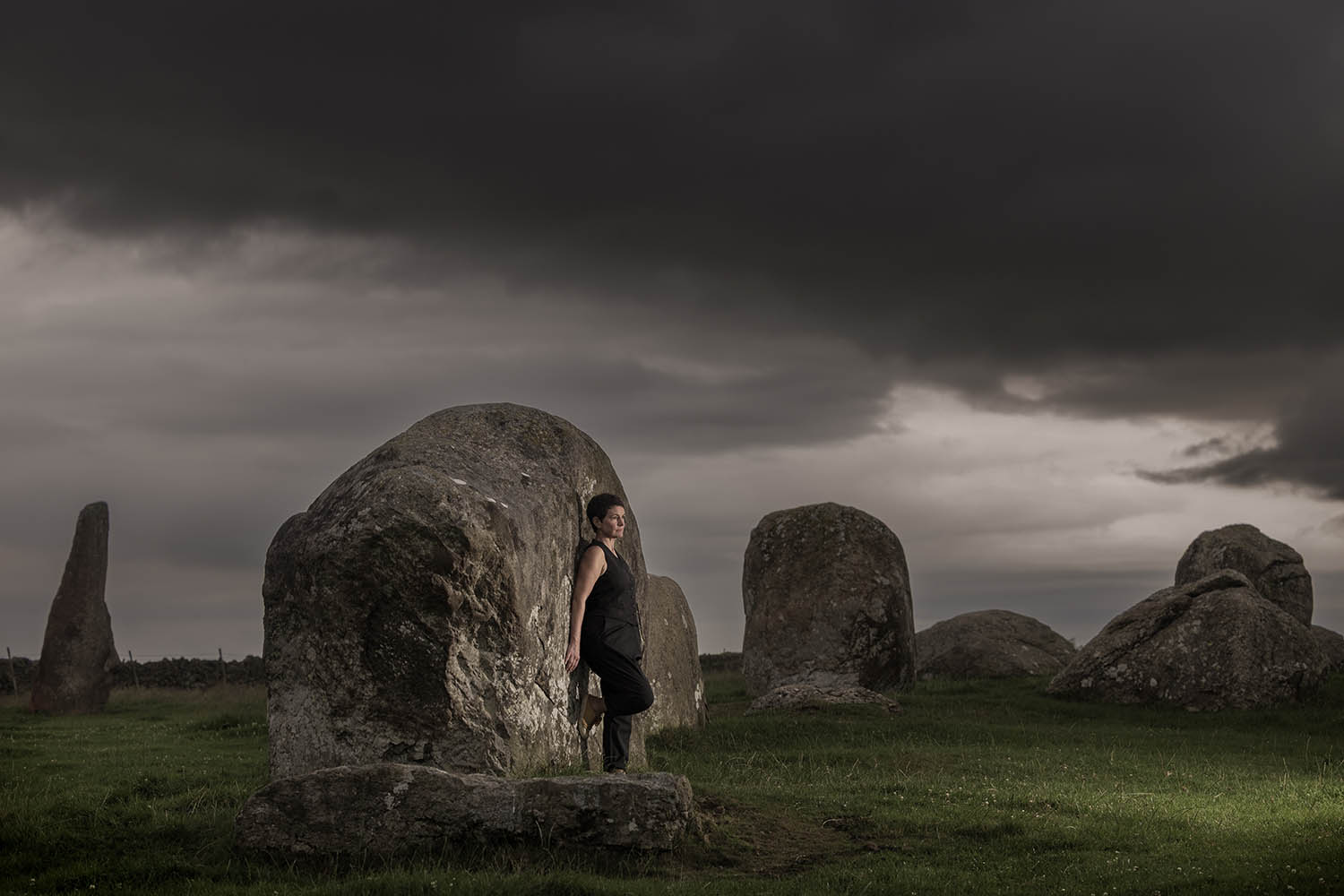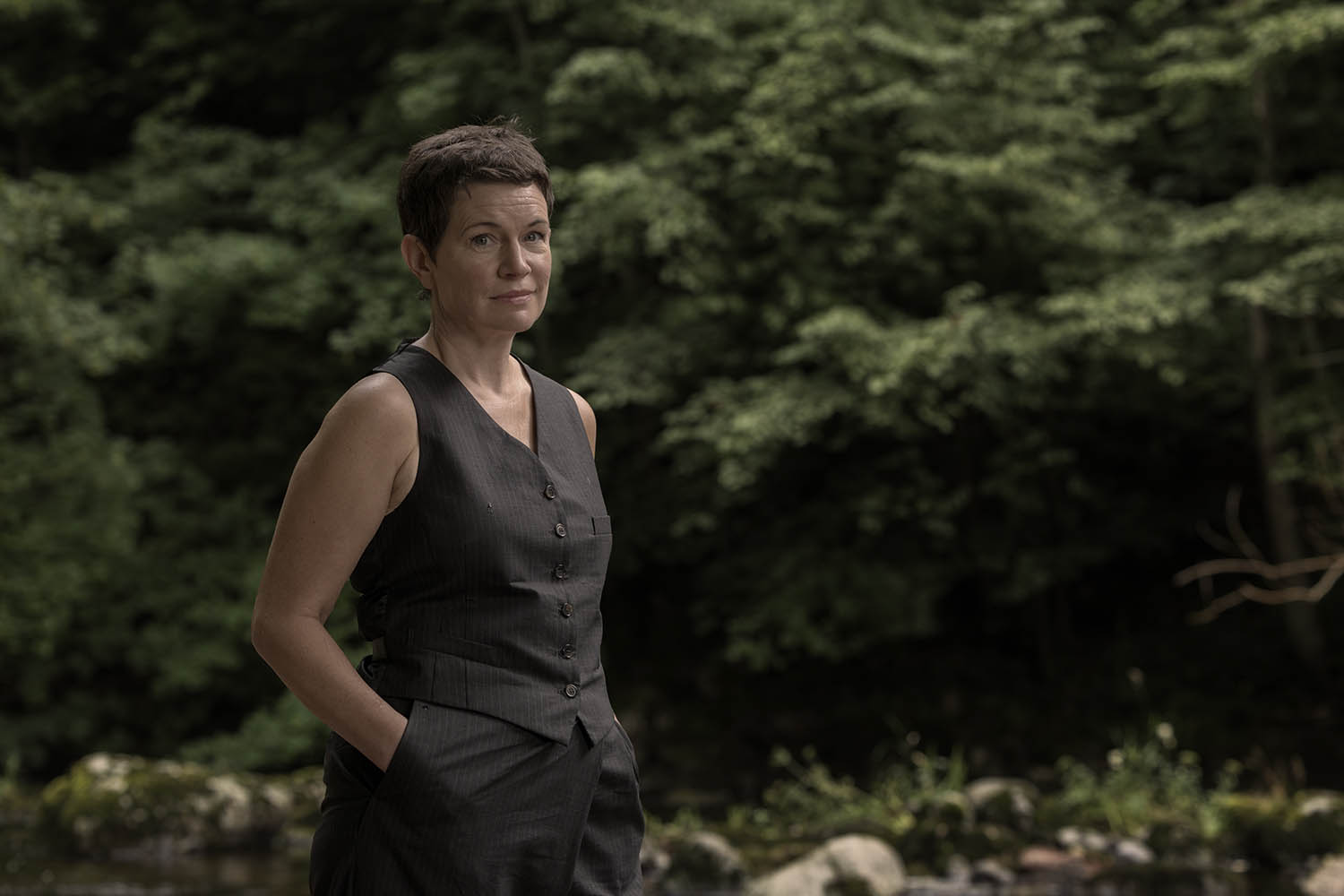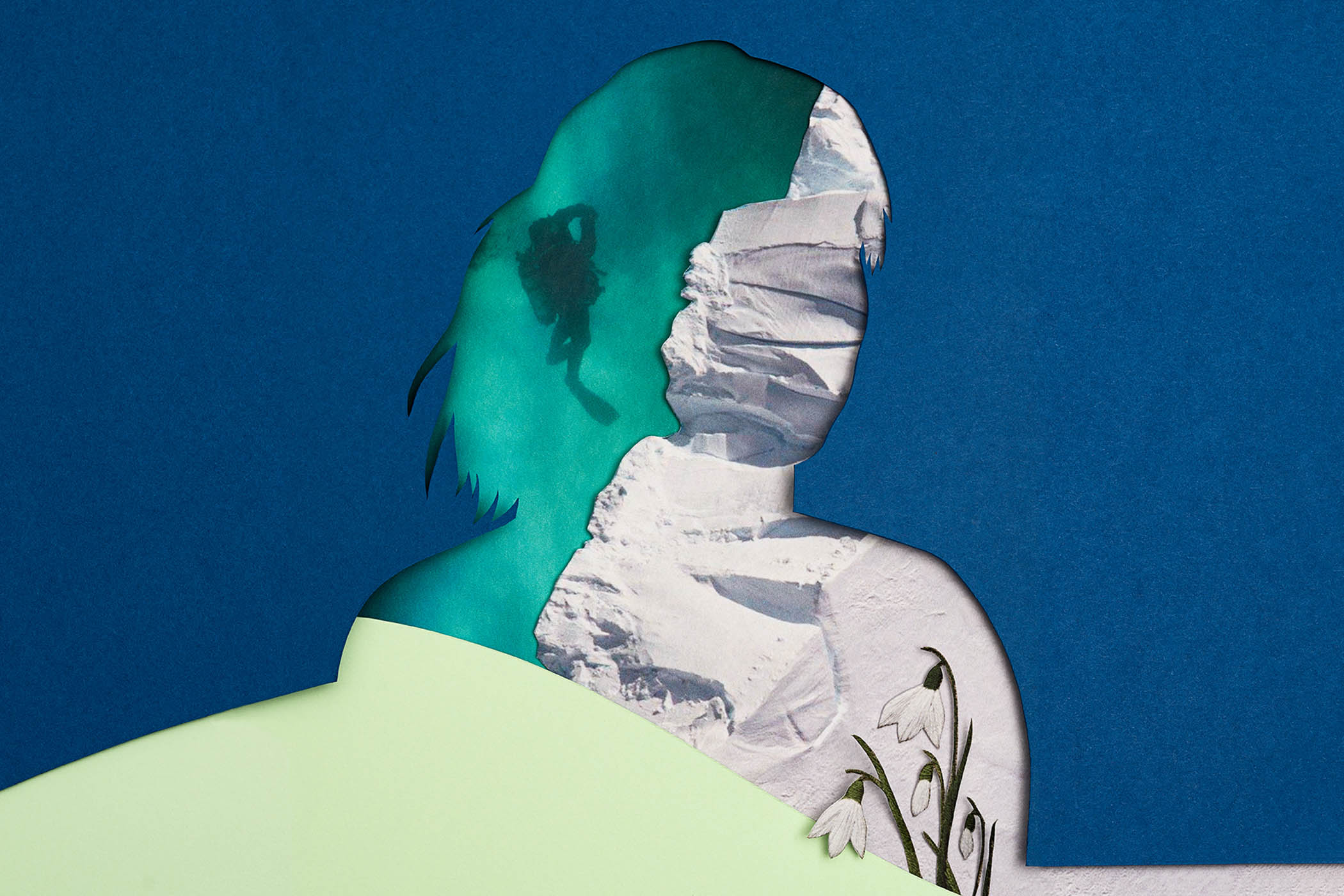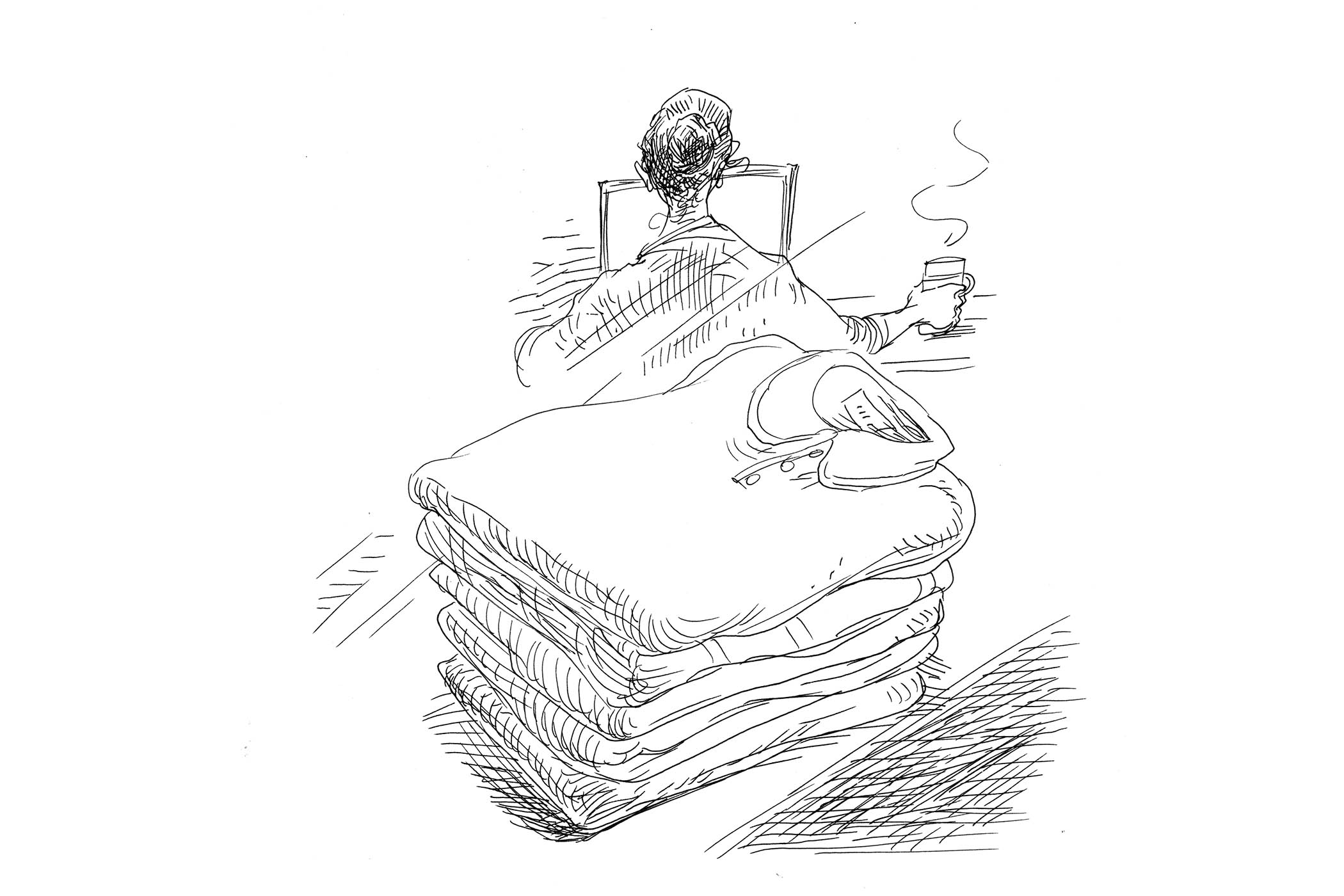I am standing with Sarah Hall on Scout Scar, a ridge in the southern part of the Lake District, not far from Kendal, where she lives. If we turn to the south we can see Morecambe Bay, shimmering in the hot summer sun; beyond is the needle of the Blackpool Tower. But when we turn to the north we look to the shouldering ridge of the Pennines. This is where Hall grew up, and where she lived in the shadow of Cross Fell. It is there that the Helm Wind blows: it scours the landscape and builds a long, rolling, distinctive bank of cloud against the hills. France has the Mistral and the Tramontane; in the US you’ll find the Santa Ana in California and the Chinook in the Rockies. But the Helm is Britain’s only named wind, and it is the animating spirit of Hall’s engrossing and adventurous new novel.
Growing up, Hall felt the Helm was “almost like a childhood friend”. Her parents’ cottage looked up at Cross Fell: “As a kid – and lots of kids in the valley would do this – you’d be looking for the Helm clouds, the big base cloud on the mountain and the rotator cloud, which is pretty stunning.” She’s always been, she says, “a weather geek”, but growing up in Cumbria, where four seasons can come in a day, perhaps you have to be. More than that, though, she has demonstrated over the last quarter of a century a unique ability to conjure her native landscape in immersive storytelling.
When her debut, Haweswater, was published, she was praised for what one critic called her “show-stopping genius”; The Carhullan Army brought dystopia to the Fells in 2007 and remains eerily, grimly prescient. Her last novel, Burntcoat, published in 2021, was one of the first books to reckon confidently with the pandemic, all the while examining what it means to be a female artist in the world. She is the author of four collections of stories and is the only writer to have won the BBC National Short Story Award twice; The Electric Michelangelo was shortlisted for the Booker prize in 2004 and How to Paint a Dead Man was on the longlist in 2009. But through it all, her latest work, Helm, has haunted her – it’s a book that has been on her mind for two decades, nearly since she started writing.

Sarah Hall in Cumbria’s Vale of Eden
“I didn’t know what to leave out, what to put in, and how to shape the thing,” she tells me when we’re back at her kitchen table. She lives with her 11-year-old daughter in a beautiful little cottage where she has settled after moving back to Cumbria after spells in the US (Virginia, North Carolina) and Norwich. But when she finally gave herself to Helm, it gave itself to her. The novel is confident and expansive, composed of stitched-together narratives that range across thousands of years. In the Neolithic age, NaNay is a shaman – for want of a better word – whose people want to placate Helm; in the present day, Dr Selima Sutar is a meteorologist who fears for the future of Helm as climate crisis threatens delicate ecosystems, and as she battles her own personal demons. In between is a medieval wizard, an engineer of the Industrial Revolution – not to mention the story in this paper, of a couple enjoying the erotic delights of a ride in a n early hot-air balloon while Helm, that frisky devil, sports around them.
For the wind itself is a character in this book. “The idea of Helm as a kind of narrator, in a very varied, fun way, was what pulled the book together in the end. The idea of a sort of slightly puckish, naughty, sex pervert character,” Hall says, smiling. “Because they used to believe that aerial demons would just blow your skirts up, all that kind of stuff.” Hall’s Helm is genderless (“Helm enjoys the feeling, of agency, or urgency, so plays with Helmself to arouse the feeling: desire for a great, wreaking, havoc-making release”) and fully sentient.
The rights of the natural world are being asserted by writers and campaigners such as Robert Macfarlane – whose new book asks Is a River Alive? – and Mónica Feria Tinta, author of A Barrister for the Earth, who advocates not only for people but also for rivers, forests and endangered species. “Indigenous cultures from all around the world have given rights and respect to nature,” Hall says. “This is not a new thing. It’s just not a western thing. It’s not a post-Industrial Revolution, capitalist thing.” But as weather, land and water change around us at dramatic and alarming speed, these are ideas we must engage with. Helm is dedicated to Hall’s daughter: “How I hope there will be a Helm when you are old,” she writes in her acknowledgments.
Human action can cause unimaginable damage; it can also produce wonder and beauty, and Hall acts in defence of that too. In the UK, proposals to regulate artificial intelligence have been delayed as ministers continue to debate the ramifications of the technology and its use of copyrighted material; what isn’t in doubt is that as content produced by large language models becomes more sophisticated, work made by real artists with real minds and real souls must be defended.
Hopeful stories might be what lift us out of this feeling of ‘nothing can be done now’
Hopeful stories might be what lift us out of this feeling of ‘nothing can be done now’
Hall is in the vanguard: each copy of Helm will be marked with an elegant colophon: “Human made”. “Cumbria is a territory of artisans,” she says. A bridge near her childhood home was marked by the mason who built it; this is a version of the same. “It’s an assertion of authenticity and provenance of my craft work. This is 20 years of my work; it’s important to me to put myself across to the public in this way, to raise awareness of what will surely become a consumer choice.” She devised it together with her publisher, Faber & Faber; her American publisher, Mariner, will use it too. She compares it to an organic label on food. “They were absolutely on board with the idea,” she says of both firms.
Related articles:
In her earlier books, Hall hasn’t hesitated to mine life’s darker aspects; what’s striking about Helm is that despite the seriousness of much of its subject matter, it’s also great fun, and it’s clear that Hall enjoyed writing it. She is wary of falling too far, even in our challenging circumstances, into ways of thinking that only generate tales of gloom and disaster. “I’d like to consider, what are the ways in which we’ve cooperated with nature? We’re in a bit of a deficit when it comes to hopeful stories – and really, they might be the thing to begin to lift us out of this terrible feeling of ‘nothing can be done now’.”
It’s time for me to make my journey back down to London. It isn’t just a walk in the fine clear air that leaves me with a sense of optimism; Hall is able to address the darkness of the world while still seeing, treasuring, what’s bright. Helm marks a new stage in her fascinating career: visionary, adventurous, full of an unlikely and contagious sense of hope. That’s rare enough.
Helm is published by Faber & Faber on 28 August. Order a copy at observershop.co.uk for £18. Delivery charges may apply.
Read A Balloon Ride, a short story by Sarah Hall inspired by the Helm Wind.
Newsletters
Choose the newsletters you want to receive
View more
For information about how The Observer protects your data, read our Privacy Policy
Photographs by Gary Calton for The Observer



